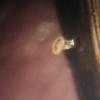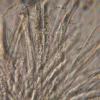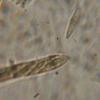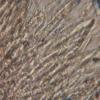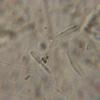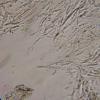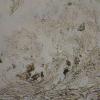
07-02-2023 22:28
Ethan CrensonHello friends, On Sunday, in the southern part of

19-02-2026 17:49
Salvador Emilio JoseHola buenas tardes!! Necesito ayuda para la ident

19-02-2026 13:50
Margot en Geert VullingsWe found this collection on deciduous wood on 7-2-

16-02-2026 21:25
 Andreas Millinger
Andreas Millinger
Good evening,failed to find an idea for this fungu

08-12-2025 17:37
 Lothar Krieglsteiner
Lothar Krieglsteiner
20.6.25, on branch of Abies infected and thickened

17-02-2026 17:26
 Nicolas Suberbielle
Nicolas Suberbielle
Bonjour à tous, Je recherche cette publication :

Dear friends,
There is one more tiny discomycete collected on thin branch. I examined this specimen in statu vivo (at least, it was not dry).
Fruitbodies light orange, stalked, disc 0,5-0,8 in diam.
Asci IKI Blue
Spores elongated, 15-19-2,7-3,7 um, sometimes 1-septate, non-guttulate or sometimes with several small guttules.
Paraphyses with many septae (or with large guttules which make impression of septae), the apical cell is often non-guttulate, but in the lower part there are many small guttules.
Also there are excipular(?) hyphae which contain some crystalline or dense substance.
Is it some species of Helotium of Phialea?
These inoperculates are really difficult(
With best wishes,
Irina

And are you sure this is a woody stem? Not herbaceous.
I can only guess for Cyathicula cyathoidea.
Phialea and Helotium are very old genera, not used anymore.
Zotto

I have 2 apothecia.
Yes, the stem is probably herbaceous.
Irina

Zotto
La taille des spores est 15-20 x 3-4µm.
la couleur de l'apothecie varie de jaune pâle à orange et même rose.
Toujours sur herbacées.
Amitiés
Didier
I think that it is about crocicreas coronatum not tres typical = without teeth.
The size of spores is 15-20 x 3-4µm.
The color of the apothecie varies of light yellow in orange and even pink.
Always on herbaceous.
Best regards
Didier?

Zotto

Zotto,
Ok, I'll do it on Monday and show the photo
Irina

It's a pity, but the last fruitbody I had was infected by some mould fungus and I see mostly alien hyphae in preparation:(
By the way, I like the idea about teethless C. coronatus.
Sincerely,
Irina

